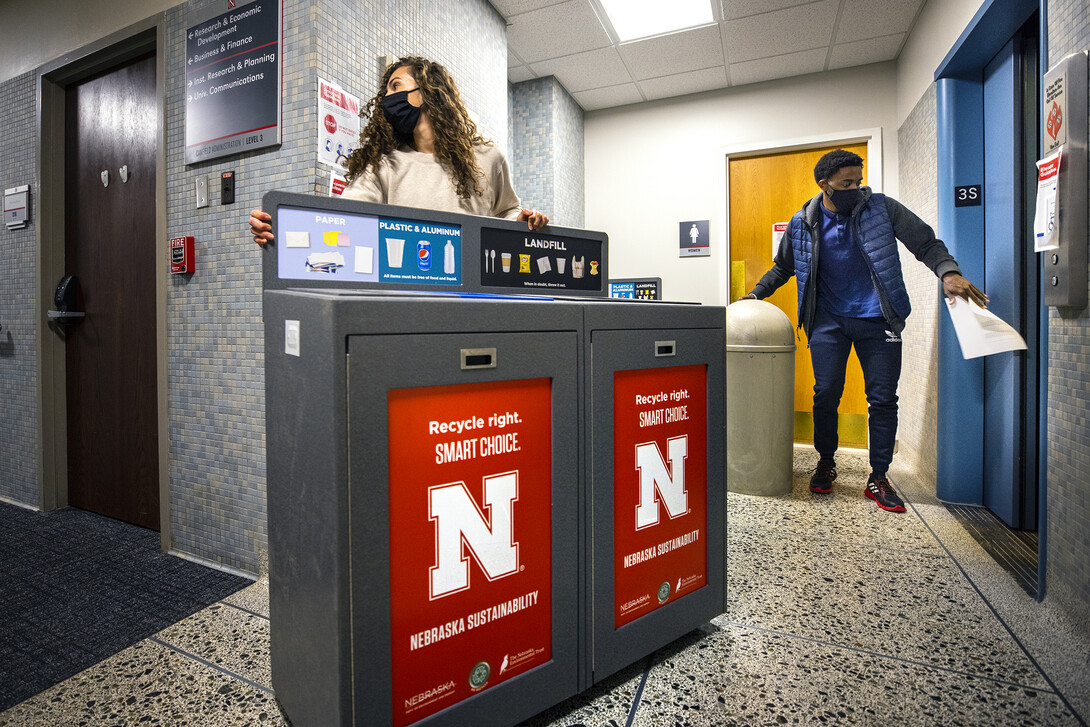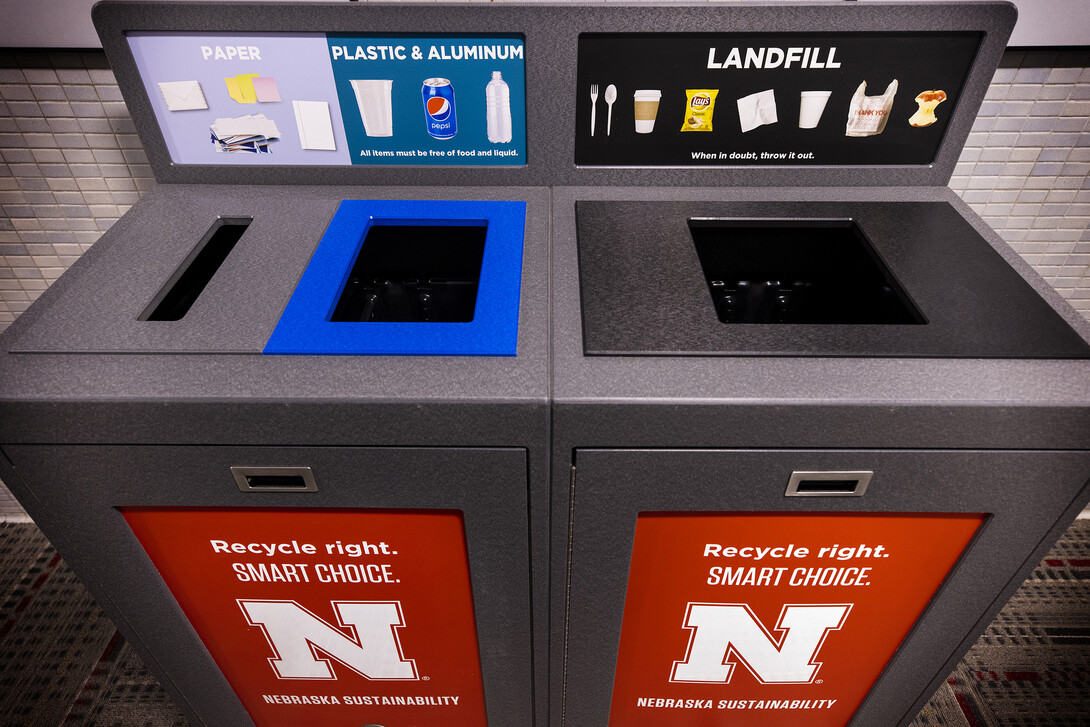
New recycling containers, signage and processes are coming to eight academic buildings across campus beginning Dec. 1.
The changes, which will be completed Dec. 10, include the Alexander Building, Andersen Hall, the Canfield Administration Building, Hamilton Hall, the Mary Riepma Ross Media Arts Center and the Van Brunt Visitors Center on City Campus, as well as Agricultural Hall, Filley Hall, the Food Industrial Complex and Hardin Hall on East Campus.
Prior to this month, recycling practices in each of the eight buildings varied by college, department and sometimes even by floor. The new project creates a unified standard for those recycling methods, making the process more efficient and easier to understand for students, faculty and staff.
“This pilot project is intended to provide better recycling education and take the guesswork out of recycling,” said Morgan Hartman, project coordinator for recycling services. “These types of initiatives have been successful at other Big Ten and higher education institutions, and we believe it can make a positive impact here at UNL with the support of our faculty, staff and students.
“It is our hope that this project will be a great first step in meeting our goal of becoming a zero-waste campus by 2030, as outlined in the recently approved Environment, Sustainability and Resilience Master Plan, as well as contribute to the growing culture of sustainability at Nebraska.”

Under the pilot project, waste and recycling stations with separate streams for paper, plastic and aluminum, and landfill materials will be installed near high-traffic points such as restrooms, stairs, elevators and entrances.
The stations contain images and signage designed to help building occupants understand what exactly can and can’t be recycled.
Additionally, paper-specific “Slim Jim” containers will be placed in copy rooms to provide a convenient paper recycling option.
As part of the changes, custodial staff will stop emptying deskside trash cans in individual offices and cubicles in each pilot building. Instead, occupants will be responsible for bringing their trash to a main recycling and waste station.
Below are a few frequently asked questions that building occupants may have about the updates:
Are you taking away my trash can?
New, centralized waste and recycling stations will replace trash cans in hallways, conference rooms, classrooms and kitchenettes. Trash cans will remain in restrooms and research labs, and they will continue to be serviced by custodial services.
Deskside trash cans will not be taken away (unless otherwise requested), but they will no longer be serviced by custodial staff. If you chose to keep your deskside trash can, it will be your responsibility to transport its content to the nearest waste and recycling station to sort items for disposal.
What do I do if my nearest station is full?
Custodial staff will be closely monitoring new waste and recycling stations to avoid any instance of a full container. Should this happen, please contact the UNL Facilities Service Desk by calling 402-472-1550.
There is not a slot for cardboard in the waste and recycling station. What do I do with cardboard?
Please flatten cardboard and place it behind the waste and recycling station or take it directly to the nearest cardboard dumpster located outside your building.
Will custodial staff still provide cleaning services for my office?
Yes. Aside from discontinuing deskside trash services, office cleaning will not be affected by the pilot project.
My office has a shredding container for confidential documents. Will you take this away?
There will be no change to shredding processes in pilot buildings. If you have a container for confidential documents, it will remain in place as is.
For additional information, email Morgan Hartman at mhartman18@unl.edu or visit the university’s recycling website.







